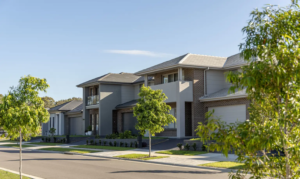In the fast-paced and ever-evolving landscape of healthcare, the realm of mental health is experiencing a revolutionary shift towards greater accessibility and convenience. The advent of virtual psychiatric consultations has paved the way for a transformative approach to mental well-being, transcending geographical constraints and dismantling barriers to access. This article explores the dynamic landscape of virtual psychiatric treatment and its profound impact on the evolution of mental health care.
The Virtual Revolution: Breaking Down Barriers
One of the key catalysts in the evolution of mental health care is the emergence of virtual psychiatric consultations. These online sessions have redefined the traditional therapeutic model by leveraging technology to connect individuals with mental health professionals remotely. This innovation has broken down geographical barriers, making mental health support accessible to a broader demographic, especially those in underserved or remote areas.
Accessibility and Convenience at the Forefront
Virtual psychiatric consultations offer unparalleled convenience for individuals seeking mental health support. With just a click, individuals can connect with licensed psychiatrists and therapists from the comfort of their homes. This level of accessibility is a game-changer, particularly for those with mobility issues, busy schedules, or social anxiety, who may find it challenging to attend in-person appointments.
Personalized Care in the Digital Age
The evolution of virtual psychiatric treatment is not just about making mental health care more accessible; it’s also about delivering personalized and patient-centric services. Through virtual platforms, mental health professionals can tailor their approach to meet the unique needs of each individual. The use of technology allows for a more comprehensive understanding of patients’ experiences, enabling practitioners to provide targeted interventions and support.
Overcoming Stigmas through Virtual Consultations
One significant advantage of virtual psychiatric consultations is the potential to reduce the stigma associated with seeking mental health care. The remote nature of these sessions provides a level of anonymity that empowers individuals to seek help without the fear of judgment. This shift in perception is crucial in fostering a culture that encourages open conversations about mental health, ultimately contributing to a healthier society.
The Human Connection in the Virtual Realm
While virtual psychiatric consultations leverage technology, they do not compromise the essential human connection that is at the core of effective mental health care. Therapists and psychiatrists employ empathetic communication skills to establish a meaningful rapport with their patients, fostering trust and a safe space for open dialogue. The virtual realm becomes a conduit for healing conversations, demonstrating that the human touch can transcend digital boundaries.
Challenges and Opportunities on the Horizon
Despite the undeniable benefits of virtual psychiatric consultations, challenges exist. Issues related to digital literacy, internet access, and privacy concerns must be addressed to ensure equitable access to mental health care. Additionally, ongoing research and innovation are essential to refining virtual mental health services and maximizing their potential for positive outcomes.
Conclusion
In conclusion, the evolution of virtual psychiatric treatment marks a transformative era in mental health care. As we navigate the ever-changing landscape of healthcare, the integration of technology into mental health services is a beacon of hope, offering a lifeline to individuals in need. The keyword “virtual psychiatric consultations” has become synonymous with progress, breaking down barriers, and elevating mental health to new heights in the digital age.








